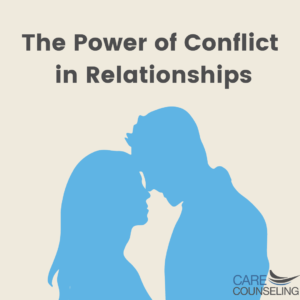 Conflict in relationships often carries a negative connotation, evoking images of heated arguments and emotional turmoil. However, it is essential to understand that conflict is a natural part of human interactions and can be beneficial. When managed effectively, conflict can serve as a catalyst for growth, deepening understanding, and strengthening the bond between individuals. In this blog post, we will explore the various facets of conflict in relationships, highlighting how it can promote healthy communication and foster personal development.
Conflict in relationships often carries a negative connotation, evoking images of heated arguments and emotional turmoil. However, it is essential to understand that conflict is a natural part of human interactions and can be beneficial. When managed effectively, conflict can serve as a catalyst for growth, deepening understanding, and strengthening the bond between individuals. In this blog post, we will explore the various facets of conflict in relationships, highlighting how it can promote healthy communication and foster personal development.
- The Nature of Conflict
Conflict arises when two individuals’ perspectives, needs, or expectations clash. It can manifest in various forms, such as disagreements, misunderstandings, or differing goals. While conflict can initially lead to tension and discomfort, it should not be perceived as an inherently negative aspect of relationships. It is important to recognize that conflict when approached constructively, can pave the way for personal and relational growth.
- The Role of Communication
Effective communication is the key to transforming conflict into an opportunity for growth. Conflict provides an opening for individuals to express their thoughts, emotions, and needs, fostering a deeper understanding of one another. Through open and honest communication, partners can gain insight into each other’s perspectives, motivations, and fears. This exchange of information and emotions builds empathy, strengthening the foundation of the relationship.
- Encouraging Emotional Vulnerability
Conflict often triggers strong emotions within individuals involved. By embracing conflict, couples create a safe space for emotional vulnerability. It allows partners to explore their own feelings and express them to their loved ones. When both parties feel heard and validated, conflicts become less about winning or losing and more about understanding and finding a mutually beneficial resolution.
- Learning from Differences
Conflict is an opportunity to learn and grow as individuals. When faced with conflicting opinions, we are challenged to expand our perspectives and consider alternative viewpoints. Engaging in constructive dialogue allows partners to appreciate the richness that diversity brings to a relationship. By embracing conflict, couples create an environment that encourages personal growth, broadening their horizons and challenging their assumptions.
- Strengthening Trust and Intimacy
Addressing conflict head-on and working towards resolutions can significantly enhance trust and intimacy within a relationship. When partners navigate conflict together, they develop a sense of shared responsibility and commitment. The ability to work through challenges fosters resilience and demonstrates the willingness to invest in the relationship. This process builds a stronger bond and deepens the connection between individuals.
Conflict, when approached with openness, respect, and effective communication, can become a powerful tool for personal and relational growth. It offers an opportunity to understand different perspectives, encourages emotional vulnerability, promotes learning, and strengthens trust and intimacy. Rather than avoiding conflict, couples should embrace it as a means of fostering healthy communication and understanding. By acknowledging the potential benefits of conflict, we can transform challenging moments into opportunities for personal development and create stronger, more fulfilling relationships.
We’re Here to help
Our wellness experts will be happy to take care of you. You can CLICK HERE to schedule an appointment now or call (612)223-8898.
Meet Clinicians
We’re united by our commitment to providing effective, relevant, and innovative mental health support at all stages of your journey. Click Here to find a therapist or find out more about who we are, where we come from, and how we live out CARE’s mission every day.
The professionals at CARE are actively collecting and creating resources to help with what you need and address frequently asked questions. We’re Here for You.



